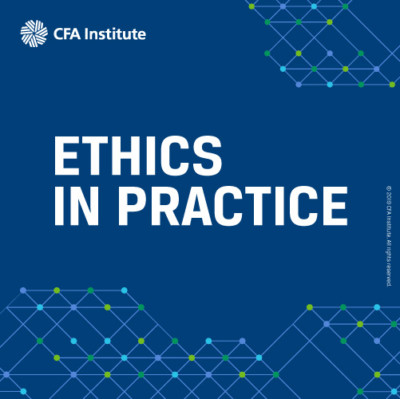Ethics in Practice: Security Investment Information. Case and Analysis–Week of 12 August
Check out the analysis to see how you did in analyzing this week’s case (12 August) and determining which CFA Institute Standard was involved.
Case
Khatri plays on a local cricket team with a number of friends from University, including Patel, his brother-in-law and an attorney, and Ahuja, who owns a software company called ZeroPower (ZP). Patel does the legal work for ZP. Over the years, Khatri, Patel, and many other friends in their circle invest in Ahuja’s company. A large global IT company makes an offer to buy ZP at a substantial premium over the company’s current share price. Patel works with lawyers from the acquiring firm to assist in their due diligence.
One weekend, during a particularly intense period of negotiations, while Khatri, Patel, and Ahuja are playing in a cricket tournament, Patel speaks repeatedly with representatives of the acquiring firm on his cell phone between cricket matches. Khatri partially overhears Patel’s discussions. Although it is not explicit that an acquisition of ZP is being considered, Khatri hears Patel mention repeatedly the name of the acquiring firm. Khatri guesses that ZP is likely to be acquired by the firm because he sees Patel and Ahuja huddled in private conversation several times over the course of the weekend. On Monday Khatri calls his broker and increases his investment in ZP by 5,000 shares. One week later, ZP announces its acquisition by the large IT firm and its share price increases by 30%. Khatri’s actions are
- acceptable because Khatri’s investment was based on his own speculation.
- acceptable because Khatri is not an insider of ZP or the acquiring firm.
- acceptable because Khatri received the information in a public environment.
- acceptable because Khatri used the Mosaic Theory to make his decision to increase his investment in ZP stock.
- none of the above.
Analysis
This case relates to material nonpublic information. CFA Institute Standard of Professional Conduct II(A): Material Nonpublic Information prohibits CFA Institute members from taking investment action based on material nonpublic information in their possession. The prohibition in this standard is not limited to only those who have information because they are “insiders” but applies to anyone who is in possession of material nonpublic information. In this case, Khatri comes into possession of material nonpublic information by overhearing confidential information from Patel’s phone calls and seeing Patel’s interactions with Ahuja that are prompted by those calls. Although the information about the acquisition of ZP was not explicitly stated, and some degree of deduction was required by Khatri, he knew or should have known that this information was confidential, nonpublic, and material. Patel should have been more careful to keep his phone conversations more private, but that does not allow Khatri to use material nonpublic information gleaned from eavesdropping on those conversations. Khatri’s actions are not an example of using the Mosaic Theory (investing based on cumulative nonmaterial or public information) because he uses of confidential, material information that is improperly obtained. Therefore, E is the best response.
This case is based on a July 2019 US SEC Enforcement Action.
Let us know what you think of Ethics in Practice by taking this short survey.
Have an idea for a case for us to feature? Send it to us at [email protected].
More About the Ethics in Practice Series
Just as you need to practice to become proficient at playing a musical instrument, public speaking, or playing a sport, practicing assessing and analyzing situations and making ethical decisions develops your ethical decision-making skills. The Ethics in Practice series gives you an opportunity to “exercise” your ethical decision-making skills. Each week, we post a short vignette, drawn from real-world circumstances, regulatory cases, and CFA Institute Professional Conduct investigations, along with possible responses/actions. We then encourage you to assess the case using the CFA Institute Ethical Decision-Making Framework and through the lens of the CFA Institute Code of Ethics and Standards of Professional Conduct. Then join the conversation and let us know which of the choices you believe is the right one and explain why. Later in the week, we will post an analysis of the case and you can see how your response compares.
Image Credit: ©CFA Institute

